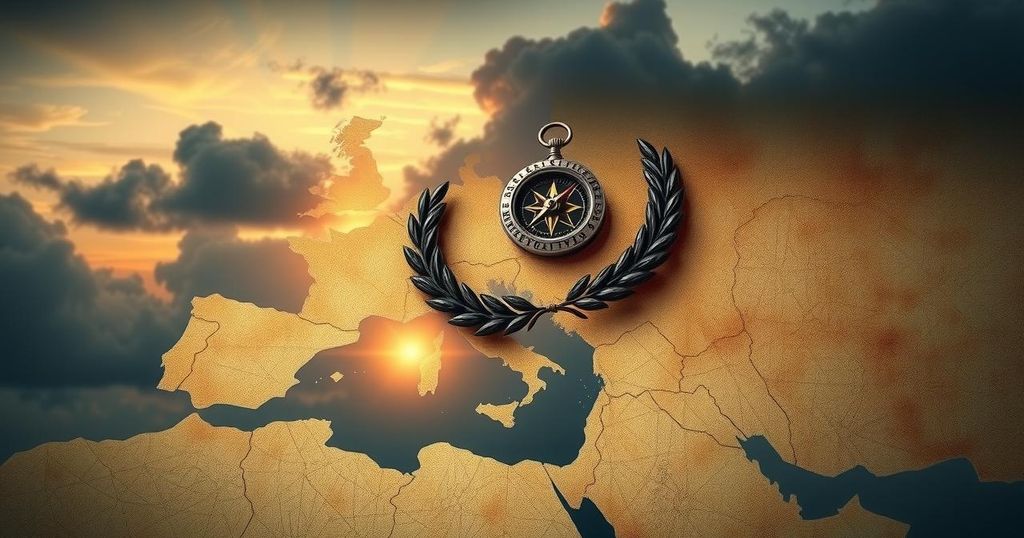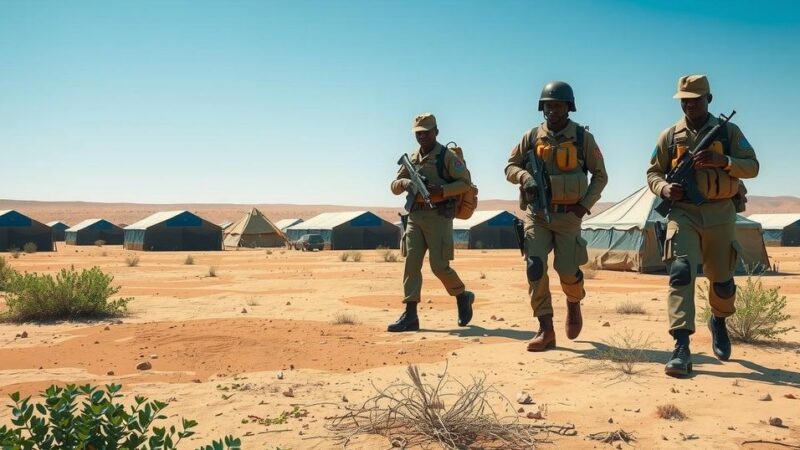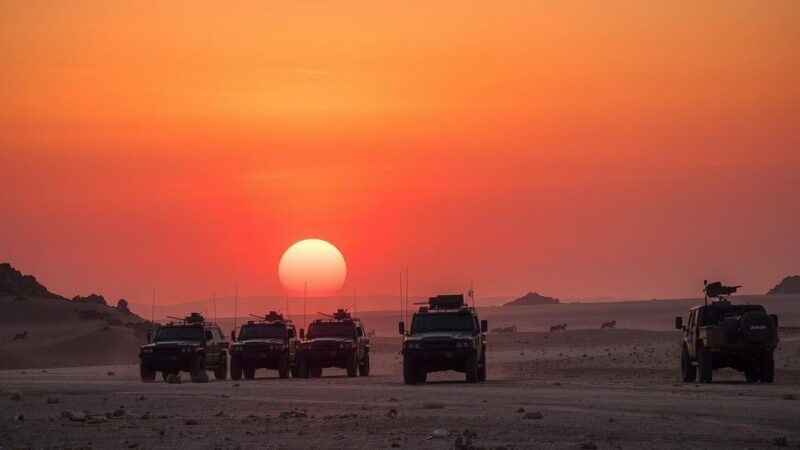M23 rebels are advancing towards Bukavu after capturing Goma, leading to military mobilization by the DRC government. Tensions escalate as the Defense Minister refuses talks. Backed by Rwanda, M23 aims to secure power within the resource-rich region, while ethnic conflicts rooted in history complicate the situation further.
The M23 rebels, after taking significant control of Goma, are reportedly moving towards Bukavu, the capital of South Kivu, igniting concern among local residents. The situation is escalating in Central Africa as the President of the Democratic Republic of Congo (DRC) calls for large-scale military mobilization against the rebels, while Defense Minister rejects any prospects of negotiation.
M23’s actions have drawn condemnation from the DRC’s Defense Minister, who is firmly against dialogue, arguing that fighting back is the only option. Control of Goma, a city crucial for 6 million internally displaced persons, has emboldened the rebels, who state their intent to gain political power rather than merely engage in talks proposed by East African leaders.
Rwanda supports M23 with approximately 4,000 troops, contributing to the stability issues in DRC’s mineral-rich eastern region, which holds valuable resources critical for global technology. The violence in Goma is pervasive, with reports of bodies abandoned in the streets, widespread looting, and a lack of essential services like electricity and water.
The conflict has deep ethnic roots tracing back to the 1994 Rwandan genocide, creating a complex situation where M23 claims to defend ethnic Tutsis in the DRC. Following the genocide, many Hutus sought refuge in Congo, complicating the demographic situation further. Unlike 2012, analysis indicates that the current withdrawal of the rebels could be more challenging due to their strengthened ties to Rwanda, which perceives threats to its interests as unresolved by the DRC.
The M23 group emerged amid ongoing turmoil in the DRC, fueled by a variety of armed factions vying for control of the resource-rich eastern provinces. The historical context of this conflict includes the aftermath of the Rwandan genocide, which saw thousands of Hutus cross into Congolese territory. The M23 rebels have previously gained notoriety for their significant control over territory and assert that their primary objective is to protect the Tutsi ethnic group in Congo. Rwanda’s backing of these rebels complicates the situation further, as tensions mount between it and the DRC government, who have repeatedly accused Rwanda of meddling in its internal affairs. The ongoing violence disrupts not only local life but also impacts regional stability.
The conflict between M23 rebels and the DRC government signifies a critical moment in Central African stability, marked by escalating violence and international implications. The DRC’s military response and Rwanda’s involvement raise important questions regarding sovereignty and humanitarian conditions for millions affected. Without dialogue or resolution, the risk of deeper chaos in the region looms significantly.
Original Source: www.vaticannews.va






